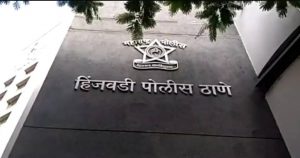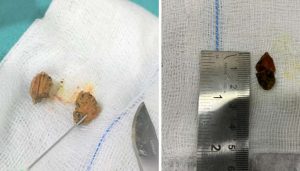“Waste Management student Projects and the feedback by Experts”
Pune, February 13, 2018: Symbiosis International (Deemed University), Symbiosis School of Economics (SSE) organized an interactive session on 13 February 2018 with Dr. Isher Judge Ahluwalia and Prof. Sharad Kale on Waste Management. Dr. Isher Judge Ahluwalia is a renowned economist, and is a Chairperson on the Board of Governors for the Indian Council for Research on International Economic Relations (ICRIER). Prof. Sharad Kale is Director, Symbiosis Centre for Waste Resource Management. The event was held at Ambedkar Bhawan’s Multi purpose hall, SB road, from 9.30 am – 1.30 pm.
The event was attended by the Bsc. (Economics, Hons) and Msc. (Economics) students of SSE, faculty members, and Dr. Rajni Gupte, Vice-Chancellor of Symbiosis International (Deemed University). The theme of this years’ student’s Projects is “Waste Management”. The student’s of SSE presented their work on diverse topics under waste management such as household waste, food waste, electronic-wastes, bio-medical waste, paper waste, etc.
In their work, students pointed out that household waste constitutes a major component of total waste generated in India and government should device ways in form of monetary instruments to reduce wastes by households and firms. It was also suggested that to ensure better human health and safety, effective solid waste management solutions must be implemented which should be both environmentally and economically sustainable. They also pointed out that small size and insufficient number of community bins makes frequent lifting of waste necessary. One of the students group’s presented a SWOT analysis of the present models for municipal waste management including the Zabaleen model operating in Egypt. Students working on vegetable waste management in APMC (Agriculture Produce market Committees) pointed out that in these markets major factors contributing to waste generation were lack of storage facilities, negligence during transportation, issues with packaging and distribution. They however suggested that the vegetable waste can be used for vermi-composting for which proper coordination among stakeholders is essential. Group working on e-waste pointed out that currently India is facing many challenges with respect to e-waste management. The regulation of e-waste is ineffective and its improper disposal can lead to various health risks.
Dr. Jyoti Chandiramani, Director, SSE welcoming the guests mentioned, “The session shall provide a platform to students to get valuable guidance on their projects and improve the understanding of the topic”.
Dr. Isher Judge Ahluwalia mentioned that ‘Pune is one the best cities in terms of Solid Waste Management, where the segregation of waste by Households is one of the highest in India. Similarly, SWaCH model comprising of cooperative of rag-pickers is one of the efficient models. What is needed is that if the Standard Operating Procedures (SOP) for such Cooperatives is laid out, it can lead to more accountability and can be adopted in other cities. Solid Waste management is a collective problem and total
market oriented system may not work. Hence the PPP (Public-Private Partnership) or Private models of waste management will stay but needed to be regulated”.
She also mentioned that “the Waste Management is an area where there is no authentic data on waste generation or segregation or disposal. The Waste generation data is generally underreported as these are estimated based on approximate per capita waste of few sample. Commenting on one of the student projects, Dr. Isher highlighted the need for Public health audit next to landfill sites. She appreciated students taking up the projects on waste management as they get sensitized on the basic civic problems. She
reiterated that awareness of the laws among the people is the need of hour. As what people call wastes, may be a resource for another sector, for e.g., biodegradable waste can be used as natural fertilizer for the farms and gardens. Residents should be encouraged not to mix the dry and wet waste together.
Prof. Sharad Kale commenting on one of the Student project on ‘Electronic Waste’, mentioned that laws in e-waste is not implemented correctly and moreover there is lack of formal data in e-waste. There should be truck that collect e-waste and Municipal authorities can use GPS to monitor waste and some data on e-waste volumes can be generated. Mumbai municipality have some data regarding e-waste, through such
process.
Dr. Isher commented that there exists a lack of guidelines from the Ministry of Health regarding e-waste. There should be impetus on creating awareness on the Health Ministry. The government should be accountable in defining e-waste.
Speaking on Bio-medical waste, it was mentioned that prevalence of risks of communicable diseases due to improper disposal of biomedical wastes. Moreover, most of such waste is incinerated which is dangerous.
Prof. Sharad Kale replying to one of the question mentioned the need for changing the attitude of the people as in western countries there is a greater prevalence of composting and recycling.
The session was arranged in order to facilitate interaction of students with the distinguished experts and it was well received by all.








